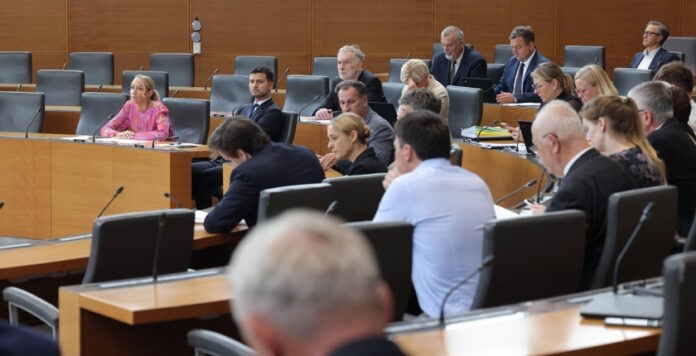The Law on the Introduction of Devices for the Production of Electricity from Renewable Energy Sources facilitates the determination of suitable areas for wind and solar power plants in Slovenia and the priority areas for photovoltaic systems. It regulates the licensing of network connections and the equipment, including for energy storage.
With 48 votes in favor and 31 against, the National Assembly of Slovenia passed the Law on the Introduction of Devices for the Production of Electricity from Renewable Energy Sources. In the proposal, the government has acknowledged that the country is among the worst in the European Union as regards the share of renewables. It has only two wind turbines in operation.
The law regulates spatial planning and licensing, primarily for wind parks and solar power plants. It regulates the procedure for declaring priority areas for photovoltaic facilities such as larger roofs, closed landfills and energy and transportation infrastructure. Among other things, it will serve as a basis for determining favorable locations. The new legislation also covers the permitting process for network connections and the equipment, including for energy storage systems.
Solar panels obligatory for larger buildings, parking lots
The Government of Slovenia said the law gives it a more active role in the segment, for instance in the preparation of an action plan for priority areas for wind and solar power. The preferred locations for photovoltaics are, among others, the roofs of larger buildings, car parks, around energy infrastructure, roads and railway as well as on closed landfills and quarries.
It is now obligatory to install solar panels on all reconstructed and new buildings and parking lots of more than 1,000 square meters and on all existing buildings with a surface of over 1,700 square meters.
Bans were lifted for renewables on degraded agricultural land and unprotected forests
Restrictions for renewables were removed for degraded agricultural land while the introduction of agrivoltaics, also known as agrisolar, is envisaged. Bans were also lifted for open cast mining pits, artificial lakes on former surface mines and unprotected forests.
The use of agricultural land and natural habitats for renewables has become a fiercely debated issue in Europe and beyond as it may impact food production and biodiversity.
New law was necessary to access European resilience funds
In addition, the law defines test centers for new technologies and determines the conditions for research concessions for geothermal power systems. Municipalities will be entitled to one-off compensation as encouragement for allowing the installation of wind parks.
The permitting procedures were simplified. For instance, photovoltaic facilities can now be installed on joint property with a smaller required share of co-owners accepting the project. Slovenia declared it urgent for relevant cultural heritage authorities to issue clearance for some areas.
The new law is expected to facilitate setting up solar panels on noise barriers on highways and floating solar power plants on artificial lakes in the Savinja and Šalek Valley, one of Slovenia’s two coal regions. Of note, there is no more coal exploitation in the area.
Representatives of the ruling coalition pointed out that adopting the bill was necessary to tap into the European Union’s Recovery and Resilience Facility. Some opposition lawmakers claimed that the law favors state-owned GEN Group.
Source : Balkan Green Energy News

